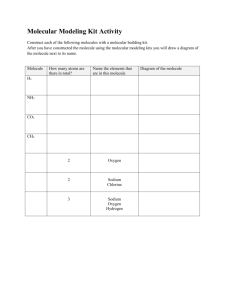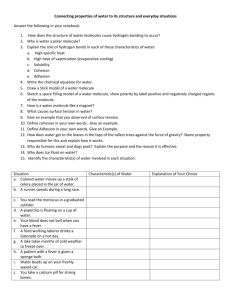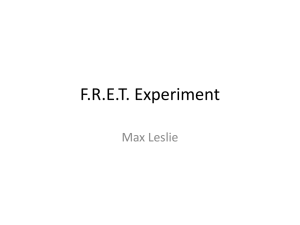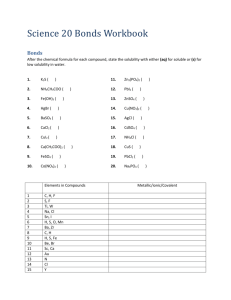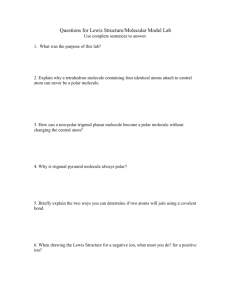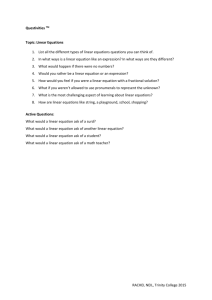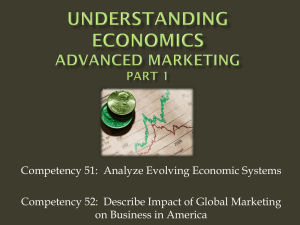Math 193
advertisement
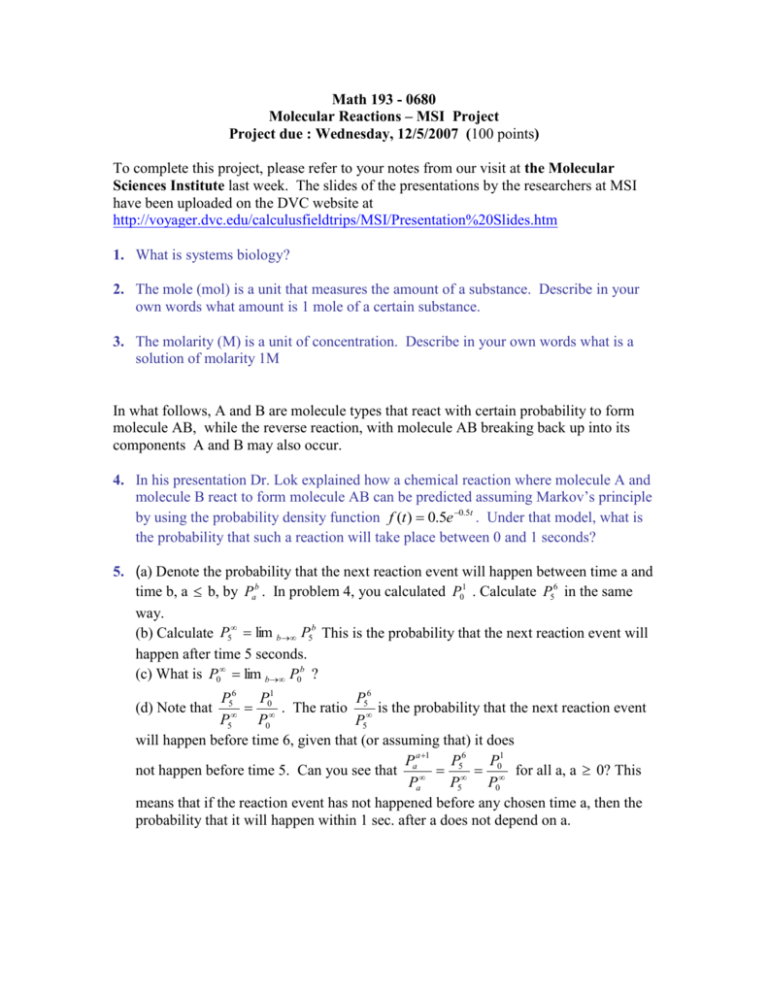
Math 193 - 0680 Molecular Reactions – MSI Project Project due : Wednesday, 12/5/2007 (100 points) To complete this project, please refer to your notes from our visit at the Molecular Sciences Institute last week. The slides of the presentations by the researchers at MSI have been uploaded on the DVC website at http://voyager.dvc.edu/calculusfieldtrips/MSI/Presentation%20Slides.htm 1. What is systems biology? 2. The mole (mol) is a unit that measures the amount of a substance. Describe in your own words what amount is 1 mole of a certain substance. 3. The molarity (M) is a unit of concentration. Describe in your own words what is a solution of molarity 1M In what follows, A and B are molecule types that react with certain probability to form molecule AB, while the reverse reaction, with molecule AB breaking back up into its components A and B may also occur. 4. In his presentation Dr. Lok explained how a chemical reaction where molecule A and molecule B react to form molecule AB can be predicted assuming Markov’s principle by using the probability density function f (t ) 0.5e 0.5t . Under that model, what is the probability that such a reaction will take place between 0 and 1 seconds? 5. (a) Denote the probability that the next reaction event will happen between time a and time b, a b, by Pab . In problem 4, you calculated P01 . Calculate P56 in the same way. (b) Calculate P5 lim b P5b This is the probability that the next reaction event will happen after time 5 seconds. (c) What is P0 lim b P0b ? P56 P01 P56 (d) Note that . The ratio is the probability that the next reaction event P5 P0 P5 will happen before time 6, given that (or assuming that) it does P a 1 P 6 P1 not happen before time 5. Can you see that a 5 0 for all a, a 0? This Pa P5 P0 means that if the reaction event has not happened before any chosen time a, then the probability that it will happen within 1 sec. after a does not depend on a. 6. In Dr. Addy’s presentation, the following mass action equations where given: dforward dreverse 0.005M 1 s 1 [ A][ B] and 0.001s 1 [ AB] dt dt Explain what these equations mean. 7. Consider the differential equations dAB = rate in which AB is produced- rate in which AB is broken up (1) dt dA = rate in which A is produced- rate in which A is used up (2) dt dB = rate in which B is produced- rate in which B is used up (3) dt Assume at the beginning of the chemical reaction (time t = 0), the concentrations of A, B and AB were given by [A] =1M [B] = 1M [AB] = 0M dAB dA dB , and at time 0. Follow dt dt dt Euler’s method to calculate [A], [B], and [AB] at time t = 0.2, 0.4, 0.6 0.8 and 1 sec. Use equations (1) , (2) and (3) above to evaluate 8. In about 30-50 words, please describe how and whether the field trip has helped your learning.
